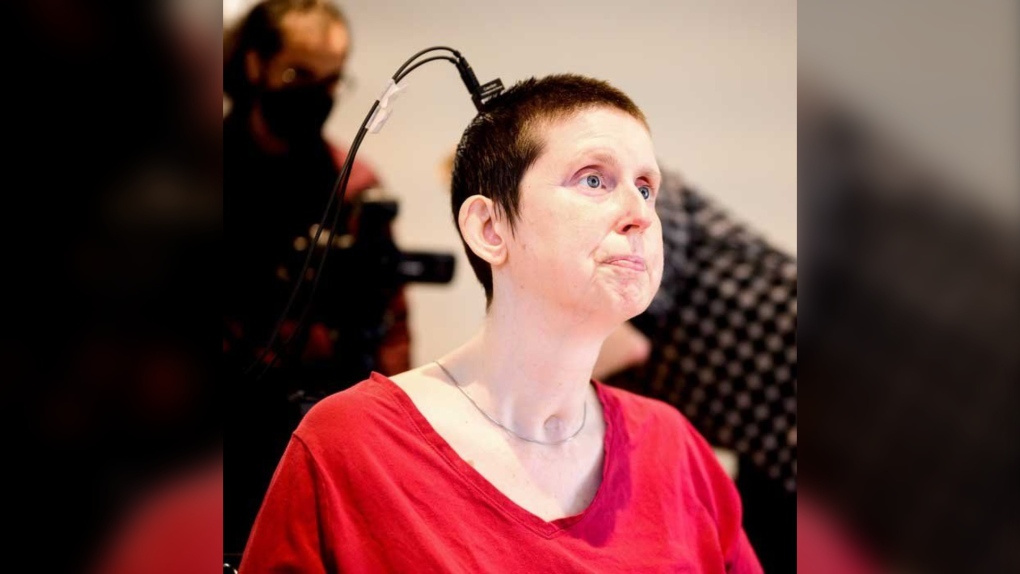
More than 18 years after a stroke took away her ability to speak, a Regina woman is getting her voice back thanks to a brain implant and groundbreaking artificial intelligence-driven technology.
According to the University of California San Francisco (UCSF), Ann Johnson has been unable to speak since a stroke she suffered in 2005 when she was 30 years old.
The stroke left Johnson, who was eight years into her teaching career at Luther College, with something called locked-in syndrome, an ailment that leaves a person fully cognizant but completely paralyzed and largely unable to communicate.
Now, thanks to researchers at UCSF and the University of California Berkley (UCB), Johnson is testing new brain-computer technology that UCSF hopes and says could one day allow people to communicate through a digital avatar that resembles a person.
According to a news article published by UCSF on its website, the new technology is able to decode Johnson’s brain signals and turn them into words.
A thin rectangle of 253 electrodes was implanted onto the surface of Johnson’s brain by UCSF neurosurgeon and chair of neurological surgery, Dr. Edward Chang.
“The electrodes intercepted Johnson’s brain signals that if not for the stroke would have gone to muscles in Ann’s lips, tongue, jaw and larynx as well as her face. A cable plugged into a port fixed to Ann’s head connected the electrodes to a bank of computers,” Chang said in the UCSF story.
Johnson then worked with researchers to train the system's A.I. algorithms to recognize her brain’s unique signals for speech.
“This involved repeating different phrases from a 1,024 word conversational vocabulary until the computer recognized the brain activity patterns associated with all the basic sounds of speech,” Chang said.
The team added an avatar and voice, and devised an algorithm for synthesizing speech.
Eventually, Johnson was able to speak using the sound of her voice after the software was trained using a clip of her speaking at her wedding before her stroke.
“My brain feels funny when it hears my synthesized voice. It’s like hearing an old voice,” Johnson said in the UCSF article.
“I want patients to see me and know that their lives are not over. I want to show them that disabilities don’t need to stop us or slow us down,” Johnson said.
Regina woman who suffered stroke getting voice back thanks to A.I., brain implant - CTV News Regina
Read More

No comments:
Post a Comment